- Home
- Christie Golden
On Fire’s Wings Page 3
On Fire’s Wings Read online
Page 3
“One of my servants noticed Kevla in the marketplace two days ago. I wished to come then, but I feared what I might do. Only today have I calmed myself so that I might speak as befits a khashim, and not a lovesick boy.”
He permitted himself a sad smile. Tears sprang to Keishla’s eyes. Her own lips tentatively curved in response. Tahmu’s heart jumped, but he forced himself to remain composed.
“I knew at once that Kevla was ours, conceived in love and born in disgrace, to serve as punishment for our transgression. You have atoned, Keishla. Now, it is my turn. I would take the child back with me, to—”
“No!” Keishla cried. “Kulis take you, son of a skuura! You took my love, you took my life, and now you want the only piece of you I have left to cling to? You did not lie with a docile liah, Tahmu, when you lay with me—you lay with a simmar!” Indeed, Keishla seemed as wild now as one of the dangerous desert cats that were the bane of the goat- and sandcattle-herders.
Tahmu replied calmly. “Think of the child,” he said softly, “not of yourself.”
“A child belongs with her mother!”
“A mother who does not want her? Who beats her? Who would raise her to be a halaan?” Had he struck her, Keishla could not have flinched more.
Tahmu’s stomach twisted, but he continued mercilessly. “Keishla, you are too proud to accept help for yourself. Accept it for her. This I swear to you—she will never want for food or a safe place to sleep. No man will dare lay a hand on her without my permission. Her work will be light, and if she desires, perhaps I will even have her educated.”
For a long moment Keishla was silent. Her breasts heaved with anger, but when she spoke, her voice was frighteningly calm.
“You spoke of a servant. Was it Sahlik?”
Tahmu nodded.
Keishla swore. “She hated me, Tahmu. She did everything she could to keep us apart, and she was the one who convinced you to discard me as if I were a soiled rhia.”
“Sahlik only voiced what we all knew to be the truth—that we could never marry.”
“Was it really the truth? Caste lines have been crossed before. It was Sahlik, right from the start, who decided that I was not good enough for you—she, a lowly five-score!”
“Blame Sahlik if you must, or blame me, who deserves it more. But give me the child.”
Again Keishla was silent, staring at the carpet. Tahmu let her take her time. He would, he knew, get what he had come for. He always did.
“She—you will not make her a five-score, will you, Tahmu?” she said, referring to the traditional five slashes—“scores”—made on a servant’s arm.
He shook his head. Though the law entitled him to make any servant a five-score, Tahmu preferred to keep to the initial purpose of the ritual scarring. The custom originated as a way of establishing dominance over captured prisoners of war. Any man, woman or child captured in battle would be honor-bound to serve the victorious clan leader for five years. The penance could be light or it could be grueling, depending entirely on the whims of the khashim. Each year, the prisoner/servant would receive a slash on the arm. At the end of five years, the final slash would be made and the prisoner returned to his people. He or she would be free, but the scars would remain, telling all who saw of the shame suffered by the bearer.
Finally, Keishla raised her eyes. They were cool, calm, free of tears. Tahmu couldn’t read her expression. She rose and lifted the blanket, calling for Kevla. After a moment, Tahmu heard the girl’s footfalls.
“Kevla, come inside.”
“Of course, Mother.” There was puzzlement in the girl’s voice, a puzzlement that Tahmu shared. What was Keishla doing?
When Kevla had entered the tent and was sitting cross-legged on the floor, casting furtive glances at Tahmu, Keishla spoke.
“You are a smart girl, Kevla. You have no doubt guessed that the khashim knew me before you led him here.”
Uncertainly, Kevla nodded. Tahmu frowned slightly. Where was this leading? Was Keishla going to tell Kevla her parentage? Tahmu desperately hoped not. The fewer who knew, the better, including Kevla herself.
“Because of the pleasure I have given him in years past, Tahmu has asked to take you with him to be a servant at the House of Four Waters.” Kevla gasped, but before she could say anything Keishla had turned to Tahmu and said in that unnaturally calm voice, “We must discuss payment. Kevla performs a valuable duty when she cries my services in the marketplace. I shall have to hire a new girl.”
Tahmu was taken aback. Out of the corner of his eye, he saw Kevla cringe. Must you make her suffer even more? Tahmu had thought better of Keishla and did not attempt to keep his displeasure from his voice.
“If you love gold better than the child, you will be amply compensated.” He reached in his pouch and tossed a handful of coins at her, contemptuously watching as she hastened to pick them up.
“That will cover the cost of a new girl,” said Keishla, “but what of my silence?”
“You have kept silent thus far, halaan!” he exclaimed, taken aback by her insult. “Why should I fear your words now?”
Her lips curled in a smile that had no warmth in it. “There is the matter of your khashima. I do not think she would react well to having her husband’s halaan show up at her door.”
Tahmu got to his feet. His face nearly purple with rage, he emptied his pouch. Keishla laughed as the coins showered her upturned face. The khashim felt physically ill, and his memories of the woman turned sour as he watched her.
Enough of the mother. Time to think of the child. “Gather your things, girl, and let us be on our way.”
Unsteadily, Kevla got to her feet. Her face was drained of color and her eyes were enormous. Then, as Tahmu watched, it seemed to him that a mask suddenly covered her face, rendering it impassive.
She shrugged slightly. “I have nothing of my own,” she said simply. She was now composed, revealing none of the hurt she must be feeling. Such would have to be the shield of a Bai-sha, Tahmu reflected. He would say nothing more to Keishla. She had forfeited her right to kind words and gentle looks with her greed. But when she called his name as he was about to leave, he paused.
Kevla was already outside. “Wait for me by my horse,” he told her. She nodded and padded up to the patient beast.
Tahmu let the blanket fall and turned around. A hard word was on his lips, but it faded like a drop of water before the heat of the sun at the look on Keishla’s face.
Gone was the sly calculation. In its place was the expression of one who had lost everything. The coins lay where they had fallen, and tears coursed down her cheeks.
“We play parts, you know, for our customers,” she whispered. “That…that was my best performance yet.” She swallowed hard. “It will be easier on her, to think I wanted her gone. She loves me, Dragon knows why, and would not have gone with you, no matter how hard I would have beaten her or chided her…though she never needed a beating, not really…oh, Tahmu….”
All the love he thought quelled now rushed to flood Tahmu. Silent, shaking, he went to her, tangled strong fingers in her long, beaded hair, pulled her head back and kissed her. For an instant she was stiff in his arms, and then she yielded. Her arms snaked around his neck, and she opened the sweetness of her mouth to him. Her breasts crushed against his chest, and he could feel her heart racing as fast as his own. For a long, dizzying moment, he was not a khashim, but merely Tahmu, a youth hotly in love with the most beautiful woman he had ever seen, who took his passion and returned it a thousandfold.
Reluctantly, he pulled away, ending the kiss. They were both breathing heavily, and trembling, and for the first time since he had arrived he saw the young woman he had loved in Keishla’s face and not the angry countenance of a bitter halaan.
He allowed himself one last caress, running his fingers over the sharp cheekbones and stubborn jaw, brushing them softly over her lips.
“You were ever my great love,” he whispered.
Tears sto
od in Keishla’s eyes. “And you mine, Tahmu. Will—will she know who she is?”
He shook his head. “No. The fewer who know such a secret, the better. You, Sahlik and I are the only ones.”
She nodded. “It is safer that way, for you and for her, too. At least, while she is little. Promise me…”
“Anything,” he answered, recklessly.
“When you judge the time to be right—when she is older—tell her who she is. Tell her she was conceived in love, the daughter of a khashim, not the fruit of a man who paid to lie with her mother. Tell her, her mother loved her enough to let her go, that it was never her fault when I grew angry and hit her. Will you do that for me?”
Emotion choked him and he could only nod. She smiled, slipped gently from his embrace and turned her back to him. It was harder than he had expected to step back and bring his attention to the present. Somehow he managed, taking a deep breath to steady himself. He pulled back the blanket, letting sun rush into the darkened tent. He glanced back one last time, marking the thick hair, the slim back and thighs, the bared feet, then turned and left.
Kevla stood beside the horse, reaching a cautious hand to pet its soft muzzle. The other hand wiped her face quickly. She did not want him to see her tears.
“Does he have a name?” she asked.
“Of course. His full name is Swift-Over-Sand, but I call him Swift.”
“Hello, Swift,” Kevla said softly. The horse blew against her fingers and she jerked them back, no doubt suddenly recalling Swift’s gold-tipped tusks, then giggled delightedly. Tahmu smiled. For the first time since he had laid eyes upon the precocious child, she truly looked and acted like a ten-year-old girl.
“It is a long trip to the House of Four Waters,” he said, reaching to pick her up and place her astride Swift. “We had best be on our way.”
It was, in truth, not that long of a journey, not by horseback. But Tahmu was used to galloping, and he knew that Kevla was unfamiliar with riding, so for the most part, he held Swift to a walk. Tahmu had expected the child to be full of questions, but the parting with her mother had clearly affected her deeply. She would not, of course, bawl like a proper caste child at the separation and the cruel words with which Keishla had sent the girl on her way. Not a Bai-sha. After the one delighted outburst at the softness of Swift’s muzzle, Kevla was quiet for a long time, saying nothing even when they passed through the heart of the marketplace, when she might have been expected to gloat just a bit.
Tahmu drew rein at a stall not far from where, earlier, Kevla had been crying her mother’s wares and bought her a meat pie, rich with spices and candied fruits. If the shopkeeper recognized Kevla perched atop so magnificent an animal as Swift-Over-Sand, he gave no sign as he handed Tahmu the pastry with much bowing and averting of eyes.
Kevla accepted it with a deep nod and a polite, “Thank you, Khashim Tahmu.” Once again, she confounded him. He had expected her to gobble it down. Instead, she ate daintily, taking small, ladylike bites although she must have been famished.
Whatever else, Keishla had trained the girl well in courtesy. Tahmu was glad. It would make integrating Kevla into his household that much easier.
They left the marketplace behind, passing through wide, flat areas of land where horses, goats, and other domesticated beasts were temporarily corralled. Livestock was for sale at the marketplace, too, at this time of year. Unable to help himself, Tahmu cast a quick glance over the beasts. Sorry, sickly things, most of them. They lay panting in the hot sun, their coats blotchy with sweat. Bones were visible beneath the skin, and even from this distance Tahmu could see their eyes were running with a thick, black ooze. The horses barely had enough energy to swish their tails at the flies that swarmed about them. It was better to trade directly with the Horserider Clan or the Sa’abah Clan than to pick up an animal here at the market.
And, Tahmu mused sourly, it is better to trade with those clans than to fight with them. Unfortunately, the choice was not always his.
They followed the road toward the mountain range that jutted skyward like a mouthful of broken teeth. Tahmu finally decided that this silence from the little sparrow of a girl he had seen dancing on the street corner was not to his liking, Bai-sha or no.
“Do you not have any questions as to your duties, little one?”
She sat in front of him as she had before, and his arm was a strong support about her waist. He felt her shrug against him.
“I am certain that the great khashim has head servants to explain my duties once I have arrived,” she said, quite properly.
Tahmu sighed a little in exasperation. Chuckling, he said, “I do not know how to handle you, little one. If you were—” His voice caught. He coughed, as if dust had tickled his throat, and continued. “If you were my child, I would know. If you were the daughter of a stranger, I would know. If you were a servant, I would know. But you are none of these, and I touch you with my words as I touch a young hawk with my fingers—gingerly, with gloves, ready to jerk my hand back or pet you on the head.”
That roused a giggle from her, as he had intended. Continuing the gentle joke, Tahmu patted the sun-warmed top of her head cautiously. The giggling increased.
“How curious your hair is, Kevla. Your mother’s hair is black, as is—as is nearly everyone’s. Yours seems black, but in the sun, it is red. Did your mother perchance use henna on it?”
“No. It’s always been like that.” She twisted to look at him, her eyes revealing a sudden fear. “Is—is that wrong?”
“No, no,” soothed Tahmu. “Perhaps it is because you were out so often in the sun with no head covering. When we reach the House, you will be given proper clothing, as befits the servant of a khashim.”
She lowered her eyes at that, her face clearly showing the struggle between fear and hope. Poor, lost little girl. He hoped she would be happy living at the House, and voiced that desire to her.
“They say many things about the noble khashim’s great House,” said Kevla, seizing upon the distraction. “Are they true?”
“Well, that depends on who ‘they’ are and what ‘they’ say.”
“Oh, so many things! I have heard there is water, more water than anyone could ever drink. I have heard there is even water for bathing, hidden in a great cavern beneath the House. I have heard the walls are of glass, and many colored, and that you have strange beasts that can cross the desert with only a cupful of water!”
She turned again to face him. Her words came faster as her enthusiasm for the tales—some of them quite fabulous—came pouring out.
“I have heard it is cool in the House in the day and warm at night. I have heard there is feasting every single evening! I have heard that the birds are trained to sing songs on command, that your hunting dogs can outrun a horse, that your wife’s beauty would blind a man if he did not look upon her with proper respect, that—”
Kevla’s eyes were fixed on Tahmu’s face. He knew he ought to discourage such familiar behavior, but he could not. Not today, not after the cruel but ultimately kind words Keishla had said. Time enough for Kevla to learn such things along with her other duties, once they had reached the House. So instead of rebuking her, Tahmu let the girl prattle on with her “I have heard” stories, smiling down as the tales grew more and more outrageous.
So intent was Kevla on recounting the stories, turned around in the saddle with her attention fully upon Tahmu, that she did not notice when the horse passed beneath a rock outcropping and made a sudden turn.
Tahmu waited until Kevla paused for breath. “Well, now, here is your chance to see what is true and what was spun by taleweavers,” he said, laughter warm in his voice. Gently, he turned the girl around.
And watched as Kevla Bai-sha gazed for the first time upon the verdant estate that belonged to the khashim of the Clan of Four Waters.
Chapter Three
Kevla swayed forward, tightening her grip on Swift’s mane to keep from tumbling off the horse in her shock. No caperi
ng fantasy creature, no nebulous dream of wealth, nothing she had conjured inside her head over many otherwise-empty hours had prepared the girl for the stunning reality that unfolded before her.
Green. It was all so green. The greenness dazzled the eyes, like the sun if one risked a glance at its brilliance. She noticed for the first time on a conscious level a sound she’d been hearing for several minutes; a strange noise, reminiscent of hot soup on the boil, but not quite. Now, she beheld what had been making the sound. Twining like a pair of snakes, two greenish-brown rivers intersected, then went their separate ways. The sun glinted off the surface, making Kevla’s eyes water. She blinked, annoyed at having her view of this amazing sight interrupted even for an instant.
Along those Four Waters traveled what Kevla knew to be boats, although the only ones she had ever seen had been toys. One type of boat was made of reeds tightly bound together. Sometimes this boat was flat, like a blanket spread upon the water, and other times its ends swooped up to mimic the other style of boat that meandered along the curving waterways. Kevla could not tell what this second one was made of, but it had large triangular pieces of fabric that caught the winds and propelled the boat much faster than simple poling would have.
Marvelous, both of the boats. Marvelous, the people that imagined such things, designed and knew how to direct them, to harness the wind and water as others harnessed the broad necks and shoulders of sandcattle.
She dragged her gaze away from the ships, letting it rove over the startling greenness of the crops and trees that grew parallel to the life-giving rivers. Kevla had seen trees before, but they had been withered, stunted things fighting for survival in a land of hard-baked earth, where the only water came from the fitful, unpredictable rains that were a rarer sight than a khashim in the marketplace. But these trees—some of their leaves were, Kevla was certain, big enough for her to lie down upon. They swayed in the wind, and Kevla caught glimpses of many-colored fruits. Moisture flooded her mouth. She could almost smell them, and imagined them sweeter infinitely than such fruits in the marketplace, where their scent competed with those of roasted meats.

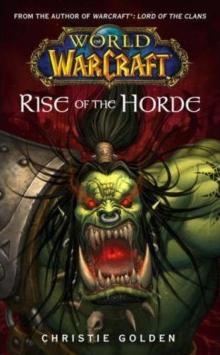 Rise of the Horde
Rise of the Horde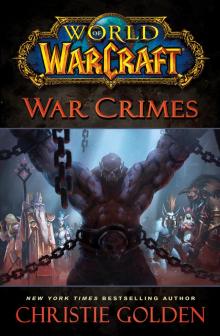 World of Warcraft: War Crimes
World of Warcraft: War Crimes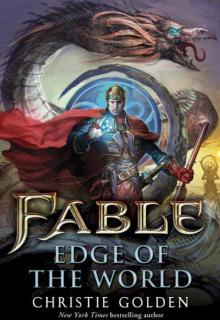 Fable: Edge of the World
Fable: Edge of the World Homecoming
Homecoming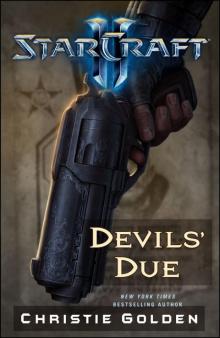 StarCraft II: Devil's Due
StarCraft II: Devil's Due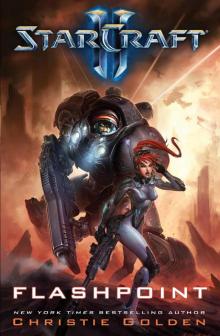 Starcraft II: Flashpoint
Starcraft II: Flashpoint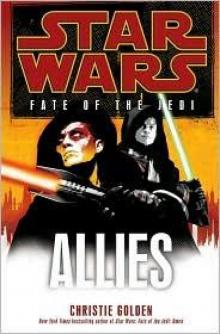 Allies
Allies Shadow Hunters
Shadow Hunters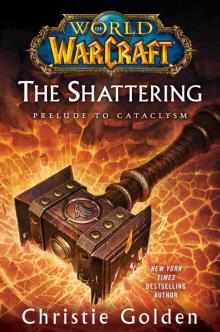 The Shattering: Prelude to Cataclysm wowct-1
The Shattering: Prelude to Cataclysm wowct-1 STAR TREK: VOY - Homecoming, Book Two - The Farther Shore
STAR TREK: VOY - Homecoming, Book Two - The Farther Shore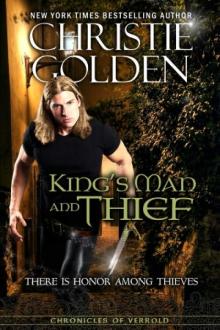 King's Man and Thief
King's Man and Thief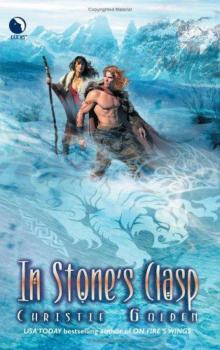 In Stone's Clasp
In Stone's Clasp Jaina Proudmoore: Tides of War
Jaina Proudmoore: Tides of War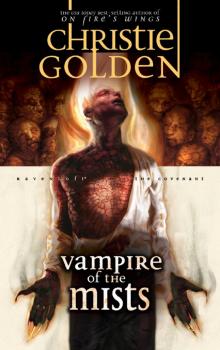 Vampire of the Mists
Vampire of the Mists Star Wars: Fate of the Jedi II: Omen
Star Wars: Fate of the Jedi II: Omen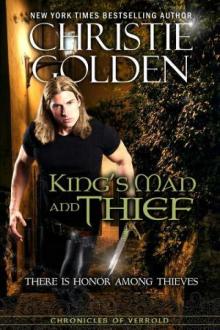 King's man and thief cov-2
King's man and thief cov-2 Star Trek
Star Trek StarCraft: Dark Templar: Twilight
StarCraft: Dark Templar: Twilight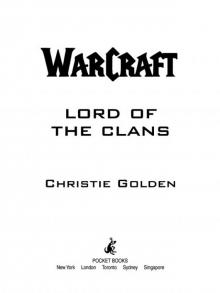 Lord Of The Clans
Lord Of The Clans ARKTIKA.1 (Short Story)
ARKTIKA.1 (Short Story)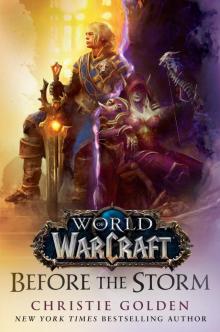 Before the Storm
Before the Storm STAR TREK: VOY - Homecoming, Book One
STAR TREK: VOY - Homecoming, Book One Shadow of Heaven
Shadow of Heaven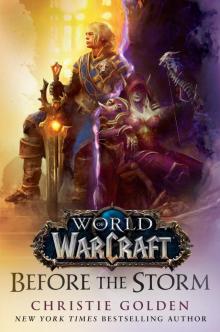 Before the Storm (World of Warcraft)
Before the Storm (World of Warcraft) Warcraft Official Movie Novelization
Warcraft Official Movie Novelization Flashpoint
Flashpoint STAR TREK: The Original Series - The Last Roundup
STAR TREK: The Original Series - The Last Roundup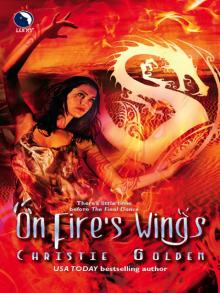 On Fire’s Wings
On Fire’s Wings Spirit Walk, Book One
Spirit Walk, Book One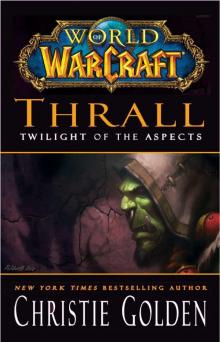 Thrall Twilight of the Aspects
Thrall Twilight of the Aspects Valerian and the City of a Thousand Planets
Valerian and the City of a Thousand Planets Warcraft
Warcraft Assassin's Creed: Heresy
Assassin's Creed: Heresy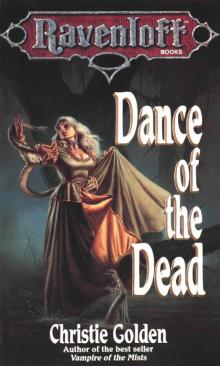 Dance of the Dead
Dance of the Dead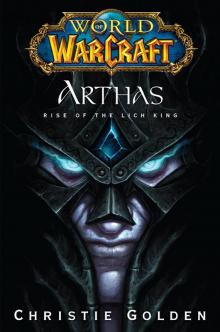 Arthas: Rise of the Lich King wow-6
Arthas: Rise of the Lich King wow-6 Assassin's Creed: The Official Movie Novelization
Assassin's Creed: The Official Movie Novelization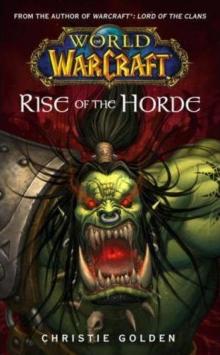 Rise of the Horde wow-2
Rise of the Horde wow-2 Dark Disciple
Dark Disciple Ghost Dance
Ghost Dance The Shattering
The Shattering Spirit Walk, Book Two
Spirit Walk, Book Two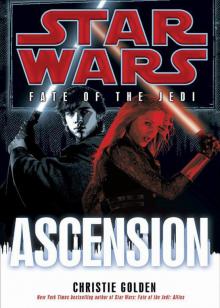 Star Wars: Fate of the Jedi: Ascension
Star Wars: Fate of the Jedi: Ascension Star Wars: Fate of the Jedi V: Allies
Star Wars: Fate of the Jedi V: Allies The Enemy Within
The Enemy Within Kindred Spirits
Kindred Spirits The Farther Shore
The Farther Shore Star Trek: Hard Crash (Star Trek: Starfleet Corps of Engineers Book 3)
Star Trek: Hard Crash (Star Trek: Starfleet Corps of Engineers Book 3) Twilight
Twilight